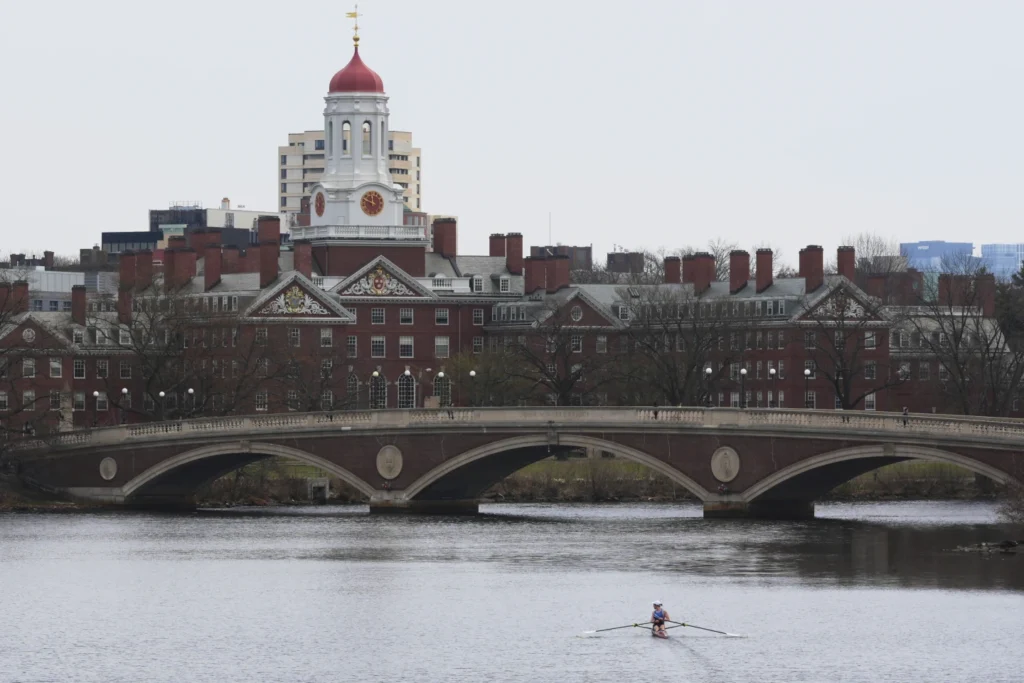BOSTON — Harvard University will urge a federal judge on Monday to extend a court order halting President Donald Trump’s latest attempt to block foreign nationals from studying at the university, as legal tensions between the administration and the Ivy League institution continue to escalate.

U.S. District Judge Allison Burroughs is scheduled to hear arguments in Boston on whether to impose an injunction preventing the Trump administration from enforcing a presidential proclamation that bars international students from entering the United States to attend Harvard. The administration claims the measure is necessary for national security, while Harvard contends it is an act of political retribution that violates constitutional protections.
Nearly 6,800 international students were enrolled at Harvard during the most recent academic year—approximately 27% of the university’s total student body. Students from China and India comprise a significant portion of that group, and the new restrictions would effectively shut them out of the campus in Cambridge, Massachusetts.
The court hearing follows Burroughs’ June 6 issuance of a temporary restraining order that froze the administration’s implementation of the proclamation, signed by Trump a day earlier. The order was the latest front in a growing legal battle between the Trump administration and the nation’s oldest and richest university, which is also challenging federal efforts to freeze billions in research grants and strip Harvard of its tax-exempt status.
In two lawsuits pending before Judge Burroughs, Harvard argues that the administration’s actions violate First Amendment protections by punishing the university for refusing to comply with political demands related to its governance, curriculum, and ideological independence.
“The administration has unconstitutionally sought to sever Harvard from its international students,” the university said in court filings, calling the move an intentional effort to destabilize the academic community and “throw into disarray every aspect of campus life.”
The proclamation, which suspends the entry of foreign nationals for an initial six-month period, authorizes Secretary of State Marco Rubio to also consider revoking the visas of students already enrolled at Harvard. Though the White House cited national security risks in the order, university officials view it as the culmination of a campaign to undermine academic freedom at institutions perceived as ideologically opposed to Trump.
The latest proclamation followed a prior move by Homeland Security Secretary Kristi Noem, who on May 22 announced the immediate revocation of Harvard’s certification under the Student and Exchange Visitor Program (SEVP). That status allows universities to legally host international students. Judge Burroughs quickly blocked that action with a temporary order.
While the Department of Homeland Security has since begun pursuing a more formal administrative review of Harvard’s SEVP certification, Judge Burroughs signaled in a May 29 hearing that she intended to issue a broader injunction to preserve the status quo during litigation.
But Trump’s June 5 proclamation has opened a new legal front. The U.S. Justice Department argued in court filings that the proclamation should not be grouped with Homeland Security’s actions, claiming it is legally distinct and does not apply retroactively to current students. Still, Harvard insists the effect is the same: to deny the university access to the international academic community.
The confrontation reflects mounting pressure on U.S. higher education institutions amid intensifying political rhetoric over immigration, national security, and ideological control of academia. For Harvard, the stakes are not just institutional but existential, with the future of international collaboration and academic exchange hanging in the balance.
The court’s decision could have sweeping consequences for other universities with large international student populations, particularly as the administration signals that similar actions may extend beyond Harvard.
A ruling from Judge Burroughs on whether to issue the injunction is expected soon following Monday’s hearing.



